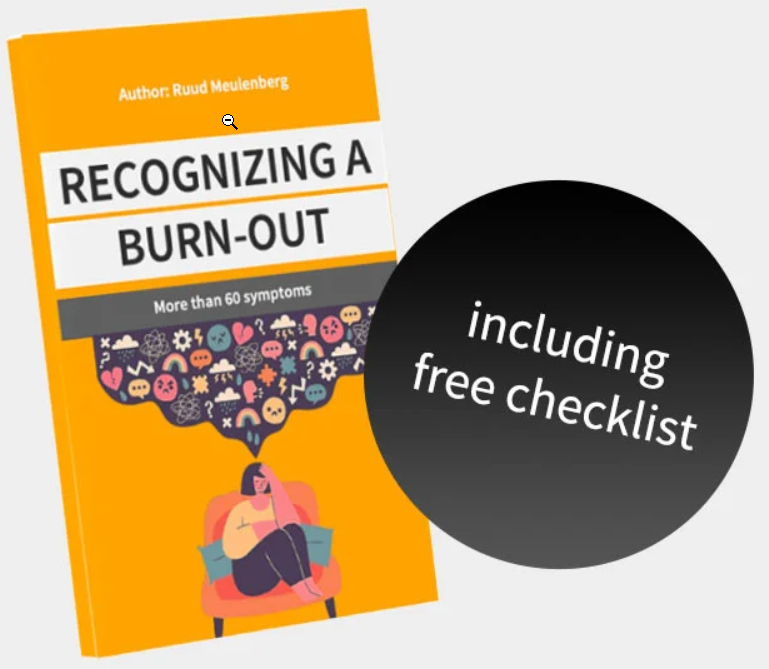If you suffer from hyperventilation, it can be a sign of stress. Many noticeable and non-noticeable symptoms appear when you have hyperventilation. This stress symptom harms your health. But you don’t have to suffer from these symptoms if you know what it is and how to overcome this problem.
What is hyperventilation
Hyperventilation is a physical response to anxiety that results in rapid breathing and low carbon dioxide levels in the blood. This condition can make you feel anxious, faint, or lightheaded.
Hyperventilation can be triggered by stress or strong emotions. You may also experience hyperventilation if you have been physically overworking yourself or taking certain medications for asthma or other conditions that affect your breathing.
Link between hyperventilation and stress
Stress is the most common cause of hyperventilation. It is a complex phenomenon affecting the mind and body in many ways. This can be caused by many factors, such as anxiety, anger, and depression.
When hyperventilating, you breathe too fast or too deeply. This causes your body to lose carbon dioxide, one of the main components of air. When this happens, your blood becomes more alkaline than normal. This means it has more oxygen and less carbon dioxide than it should have.
When you draw more oxygen into your lungs than they can hold at one time, your heart rate and breathing patterns change, creating an emergency state in your body’s nervous system. These changes cause several symptoms, including:
Rapid heartbeat
The most common symptom of hyperventilation is a rapid heartbeat. The heart rate can increase to more than 100 beats per minute. This happens because hyperventilation causes blood to be pulled away from the body’s organs and toward the lungs. This lowers the amount of oxygen in the blood and causes your pulse rate to increase as you try to compensate.
Dizziness or lightheadedness
Hyperventilation can also make you feel dizzy or lightheaded because it reduces the amount of oxygen in your blood. When this happens, you may feel like you’re about to faint. In some cases, people experience symptoms similar to those of a panic attack when they hyperventilate, including chest pain and shortness of breath.

Download our
free e-book
Recognizing a burnout
(more than 60 symptoms)
Blurred vision
This is a common symptom of hyperventilation, and it can be especially frightening if you have never experienced it. You may see things in your peripheral vision that are not there, or the objects you are looking at appear distorted or fuzzy. If you look at a light source, such as the sun or a streetlamp, the light may appear to move around, or even change shape. These symptoms are caused by pressure inside your eyes and brain changes.
Nausea
Another common symptom is nausea and vomiting, which occurs because high levels of carbon dioxide cause stomach acid production to increase. Hyperventilation can lead to diarrhea, which may also be caused by increased stomach acid production.
Shortness of breath
This is caused by the reduced amount of carbon dioxide in the blood. Carbon dioxide helps keep the airways open, so we can breathe in and out easily. Too little carbon dioxide can cause swelling in the airways, which makes it hard for us to breathe out (airway constriction).
How to deal with stress
Stress is a part of life. But it can be helpful to learn how to manage it healthily.
Meditation
Meditation can help you relax and let go of stress. Meditation has been shown to reduce stress levels and increase feelings of relaxation, so it’s a great way to keep it under control. If there’s not much time for formal practice, try taking 5 minutes each day for mindfulness:
- Focus on your breathing
- Be aware of your surroundings
- Stay grounded at the moment
- Let go of worries about the past or future
There are many different types of meditation, but most involve sitting quietly, focusing on your breath, a word or phrase, or your body’s sensations. You may find that meditation makes it easier to deal with stress when it arises.
Gratitude journaling
A gratitude journal is a way to show gratitude for what you have in life. It’s also a way to focus on positive aspects instead of negative ones that might be causing you stress. Write down three things each day that make you happy or grateful. It may be people, places, or events that make you smile or feel proud of yourself. Even if those things seem small or insignificant initially, they’ll help make a difference in your outlook on life.

Getting proper sleep and rest
Getting enough sleep is very important for your health. Too little sleep puts your body under stress and makes it harder to deal with stressful situations. Try to get 7 or 8 hours of sleep every night if possible. If you are having trouble falling asleep or staying asleep, talk with your doctor or another healthcare provider about how to get more shut-eye.
Talking to someone
Talking to someone is often the best way to deal with your emotions. It’s important to talk about what’s bothering you as soon as possible. By talking about difficult feelings or situations, you’re taking control over them and making them less overwhelming.
Can we help you?
Leave us your information and one of our coaches will contact you in 24H

You don’t necessarily have to wait until you feel ready to talk. It’s better to get it out than leave it bottled up inside. If you’re feeling tense or anxious, use a trusted person in your life as a sounding board for your concerns and worries. You could also try calling an organization that offers support services.
Listening to music
Music can help calm down by distracting you from negative thoughts or emotions. Listening to music may be especially helpful if you’ve had a traumatic experience, as it can provide comfort during difficult times and help ease painful memories.
The type of music that works best for tension relief depends on your mood while listening to it. Some people prefer listening to classical music when stressed out; others like listening to rock or pop music.
Massage
Massage can help reduce anxiety and tension, as well as muscle tension. It’s been proven to reduce the cortisol levels in your body, a hormone that helps regulate blood pressure and immune function.
If you have access to a massage therapist, this may be one of the best ways to relieve your tension. Otherwise, try massaging yourself with oil or lotion. If you don’t like getting your back rubbed by someone else, try using a foam roller instead. It’ll also help relieve knots in your muscles after a long day at work or school.
Walk in nature
Spending time outdoors has been shown to reduce stress levels and increase happiness levels. Some studies suggest that just five minutes of exposure to natural light can improve moods and energy levels. If you’re feeling stressed out after work or school, getting outside for some fresh air might be just what you need.
Stress & burnout coaching; for 100% recovery!
Reducing stress and recovering from burnout is simply incredibly difficult. The coaches at Meulenberg Training & Coaching understand exactly what you are going through and know how tough it can be. They have often experienced it themselves! With their years of experience and expertise, they are ready to help you step by step toward a full recovery. The results of our one-on-one coaching and absenteeism training will benefit you for a lifetime!
FAQ
References
- Healthline.com – hyperventilation – found on 14-11-2022
Link to the page on healthline.com - Hopkinsmedicine.org – hyperventilation – found on 14-11-2022
Link to the page on hopkinsmedicine.org - Calmclinic.com – hyperventilation – found on 14-11-2022
Link to the page on calmclinic.com






